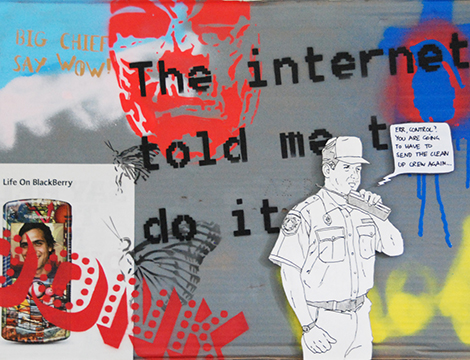
This article was originally published by World Affairs on 1 Mai 2017.
It wasn’t supposed to be this way.
At the beginning of the century, the spread of the internet, satellite television, and other media technologies was expected to break down old monopolies and political boundaries, making it nearly impossible for those in power to control what people read, watch, and hear.
Digital media have indeed expanded around the world at lightning speed in the years since, reaching populations that previously received news only from state broadcasters.
Nevertheless, press freedom worldwide deteriorated to its lowest point in 13 years in 2016, according to Freedom House’s latest annual report. Just 13 percent of the world’s population lives in countries whose media environments are ranked as fully “free.”
What the optimists failed to take into account was that forces interested in maintaining control over news and political discourse would not simply accept the inevitability of their own demise, but would fight back and look for new opportunities to increase their dominance.
Over the past decade or more, autocratic regimes—and illiberal elected governments with authoritarian ambitions—have deterred independent reporting and online criticism through familiar tools like physical intimidation, censorship on moral or religious grounds, and prosecution under draconian laws on defamation or national security.
They have harassed critical media with arbitrary tax inspections, regulatory fines, and licensing disputes. They have used corrupt, politicized control over state contracts and advertising to influence private media owners, subsidize friendly outlets, or engineer changes of ownership.
And they have taken advantage of the new ease with which media outlets can be created, conjuring up satellite networks, online news agencies, and innumerable social media accounts to amplify their preferred narratives.
Some autocrats and populist leaders—such as Vladimir Putin, Recep Tayyip Erdoğan, and the late Hugo Chávez—have gone a step further, building what amounts to a new form of personality cult.
In most modern media environments, it is no longer possible to maintain personality cults through ubiquitous statues, propaganda posters, or florid praise on state television. But energetic leaders with the necessary skills and supporting infrastructure have found ways to dominate the news with their own personalities and images, constantly taking actions or making remarks that pervade the national media.
Even independent or critical outlets operating on the margins have little choice but to discuss and react to the leader’s activities. Social media users may lampoon their president or prime minister, and may face prosecution as a result, but the conversation, in one way or another, always seems to be about the leader.
In a sense, the personality cult counteracts digital media’s tendency to fragment society into discreet audiences and political communities: The leader’s name and image become the country’s new lingua franca.
Populist leaders often claim to speak for “the people,” a unified mass that supposedly represents the authentic core of the nation. They pose as champions of the people’s interests, but gradually conflate their personal interests with those of the people. Citizens who oppose the leader are depicted as somehow alien to the nation, traitorous agents of foreign powers or converts to degenerate foreign values. It is the media, willingly or not, that ultimately cement this conceptual bond between leader and public.
Of course, the proliferation of digital media also provides an enticing way out. In an earlier era, malcontents had to make dangerous escapes through barbed wire or over walls to avoid totalitarian conformity. Today, they can simply remove themselves from the leader-obsessed news media and seek psychological refuge in distraction and entertainment, even in countries where online censorship of political content is pronounced. So long as they keep contributing to the economy, authoritarian rulers are probably happy to see dissatisfied citizens withdraw from the public sphere.
The world’s antidemocratic forces have clearly adapted well to the new media ecosystem. Democracies, meanwhile, continue to struggle.
In fact, the “monopolies” that have suffered the most from the digital revolution are the incumbent broadcasters and periodicals that once dominated the news industry in democratic states. In their heyday, facing only limited competition, they aimed their news products at the general public, and consequently adopted policies of moderation, objectivity, and fairness that would appeal to the broadest possible audience.
Today, however, their audiences and business models have been shattered by the mushroom growth of new outlets, which increasingly speak to specific demographics with a particular partisan slant. This raises the question of whether a democracy can remain healthy if its electorate is broken into distinct and sometimes hostile political cultures, isolated by the divergent media they consume.
If anything motivates democracies to find a solution, perhaps it will be the fact that they are now under digital assault—by means of propaganda, disinformation, and cyberespionage—from authoritarian powers like Putin’s Russia. Democratic citizens may have increasingly polarized political views, but they have a common interest in protecting their hard-won freedoms from genuine foreign threats.
About the Author
Tyler Roylance is a senior staff editor at Freedom House and a contributor to its new report, Freedom of the Press 2017.
For more information on issues and events that shape our world, please visit our CSS Security Watch Series or browse our Publications.

